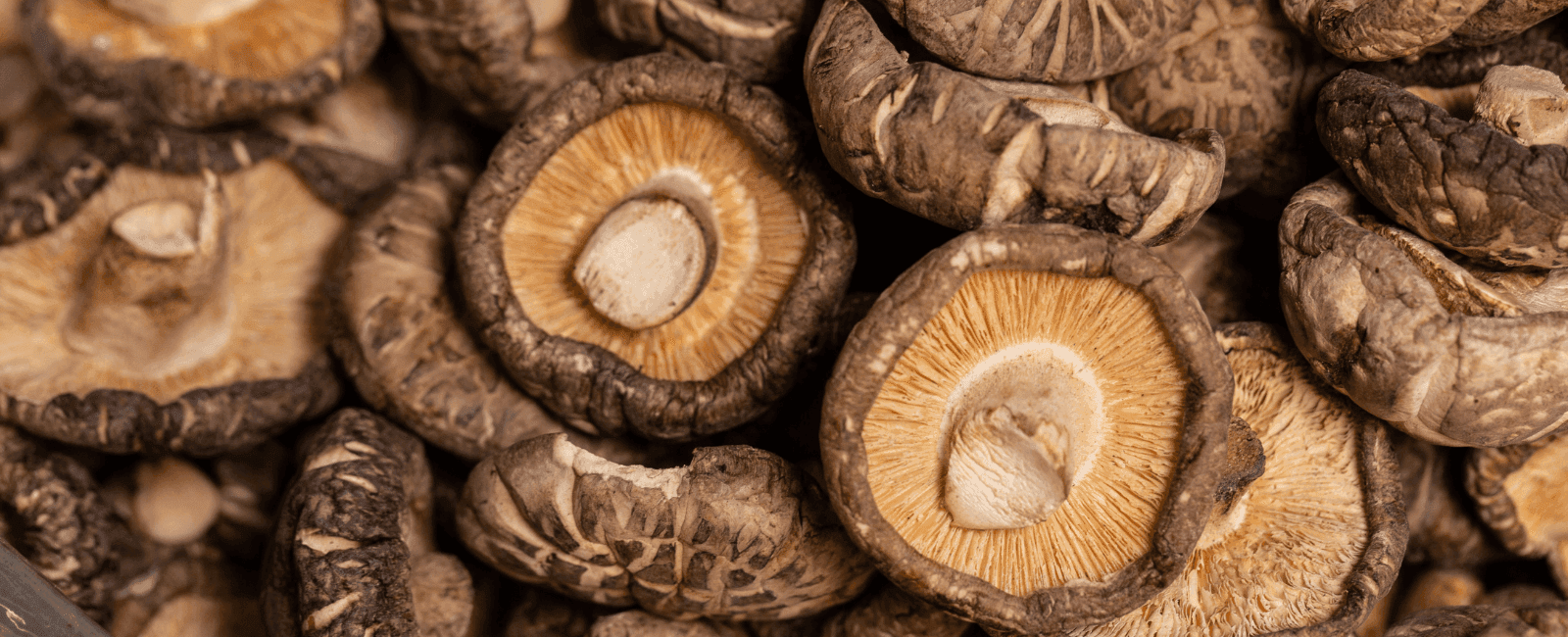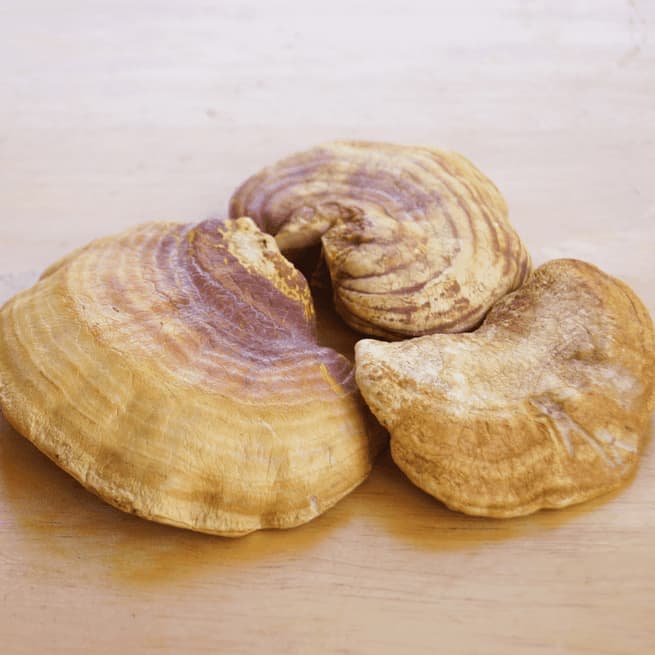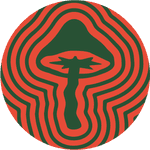

Nutritionists, dietitians, and researchers alike — everyone seems to be touting the health benefits of mushrooms these days. Besides being a low-calorie superfood, certain types of medicinal mushrooms offer benefits for women that go beyond what you might expect.
Mushrooms can be immune enhancers, defend against cancerous growth, and add key nutrients to your body (1). More than just a tasty food, mushrooms have been used for medicinal purposes for millennia.
Best mushroom supplements for women’s health
Several types of mushrooms can be used medicinally and have multiple health benefits for women’s needs. When used in supplements, they can potentially add significant benefits to your overall wellness.
1. Chaga supplements

Chaga mushrooms are a powerhouse adaptogen loaded with antioxidants that can offer abundant benefits to women.
Long used in Traditional Chinese Medicine, a limited Korean study in 2010 demonstrated Chaga’s capacity to slow the growth of lung, cervical, and breast cancer cells (2). These effects come from high concentrations of compounds like triterpenes, which can reduce oxidative stress from free radicals.
This high-value shroom is an incredible source of vitamin D, B vitamins, iron, and potassium. Some research even suggests that Chaga has an antimicrobial effect on bad intestinal bacteria, supporting positive gut health (3), (4).
Consuming Chaga is easy. Many supplements made from mixed mushroom powders include Chaga as a key ingredient; the shroom also comes in tincture form. Because of its earthy and slightly bitter flavor, Chaga is often paired with mushroom coffee and tea.
2. Reishi supplements

If it seems like Chaga has a lot to offer, get a load of reishi supplements.
Mushroom supplements that feature reishi mushrooms can have many health benefits for women. With high concentrations of the polysaccharide beta-glucan plus triterpenes, reishi is an anti-inflammatory agent that exhibits anti-cancerous properties (5).
These two compounds also make reishi a powerful mushroom for maintaining heart health by lowering blood sugar and blood pressure, per WebMD.
Research has shown that the same thing which makes reishi a potential anti-cancer agent — high level of antioxidants — actually has a dual benefit: Reishi is a supreme hormone regulator.
In a 2013 study, reishi mushroom extract was shown to have a strong effect on modulating estrogen receptors in animal subjects (6); other scientific studies champion reishi’s place as an adrenal-supporting shroom (7).
By normalizing estrogen production and reception and balancing cortisol (the stress hormone) through adrenal management, the “immortal mushroom,” makes for a menopause-friendly adaptogen that may alleviate hot flashes, mood swings, and overall stress impacts on the female body.
3. Lion’s Mane supplements

Unfortunately, as the Harvard School of Medicine reports, women are twice as likely to develop Alzheimer’s than men. For this reason alone, lion’s mane can be a powerful functional mushroom to add to your supplement routine.
Recent research published in the Journal of Neurochemistry encouraged the notion that lion’s mane mushrooms positively affect brain health and improve conditions that might typically lead to Alzheimer’s (8).
Similarly, studies show that this fungus can act as a powerful antidepressant that can relieve stress, reduce depression, and balance anxiety, all while taking pressure off your nervous system (9).
While lion’s mane is common in a wide range of mushroom supplements, they are also a lovely ingredient to cook with. Doing so can add much-needed iron to your diet.
4. Maitake supplements

Like many other functional fungi, maitake supplements are packed with nutrients that offer an antioxidative shield to your body. When oxidative stress and inflammation are reduced, immune functions can prosper.
By inducing ovulation and restoring typical insulin levels, maitakes can help also help with more chronic conditions like irregular periods and polycystic ovarian syndrome (10).
A secondary effect of this insulin management may be lower blood pressure, adding to the ways these mushrooms can help blood health; with high concentrations of beta-glucans, maitake reduces LDL cholesterol.
Maitake mushrooms are found in a full range of extract and supplemental forms, from daily pills to powders and liquid extracts.
5. Cordyceps supplements

Traditionally, cordyceps have been regarded as a libido booster for males, but some suggest that these tiny shrooms may have the same effect on the female sex, too (11).
There is also a wide range of evidence — including recommendations from IVF scientists and providers — that cordyceps can improve fertility and IVF success.
Research on animal subjects has demonstrated that cordyceps supplements facilitate estrogen production, balancing hormones and providing for smoother, balanced periods of menstruation or menopause (12).
Perhaps the most enjoyable benefit of a cordyceps supplement, however, is the way in which they can provide for happier days. As a monoamine oxidase inhibitor (MAOI), cordyceps stifles the enzyme that denatures serotonin. Ultimately, this allows more “happy” hormones to float around your brain.
Finally, cordyceps mushrooms are widely suggested as a functional ingredient that helps ATP proliferate in the body (13). This leads to an energizing effect and reduced fatigue, probably why the shroom is so often paired with coffees and teas.
6. Shiitake supplements

Well known for a crave-worthy umami flavor that’s as rich in stir-fries as in soups, shiitake mushrooms are a true jack of all trades. A 2014 study published in the Annals of Translational Medicine added to a large body of research that boosts shiitake’s reputation as an immune system super shroom (14).
In addition to general well-being promoted by stronger immune health, shiitakes are high in vitamin D (15) and key nutrients like selenium, a needed component for proteins that go on to facilitate proper thyroid functions, DNA building, and cell defense.
Like lion’s mane, shiitakes are a functional mushroom that’s also super tasty, though the easiest way to consume it is through a range of extracts or powdered supplements.
Potential side effects and precautions
In general, mushroom supplements are safe for people to consume on a regular basis. That said, there are exceptions. Some functional shrooms can begin to exhibit mild toxicity when consumed too frequently.
Reishi is one example. It’s commonly accepted advice that they should be consumed for no more than sixteen consecutive weeks before users take a break.
Common side effects of mushroom supplements include an upset stomach (including diarrhea and nausea), dizziness or headaches, and dry mouth or rashes.
Among the precautions needed before taking mushroom supplements, women should consult their medical professionals and research the origin of the mushrooms in question, potential allergic reactions, and adverse interactions with current medication.
Start with a low dose, and go from there!
Safety for pregnant & breastfeeding people
Functional mushroom supplements are still relatively new to modern wellness. With that in mind, the safety of pregnant or breastfeeding women isn’t well established.
While mushrooms are generally considered safe to eat in moderate amounts during pregnancy and while breastfeeding, the higher concentration of some compounds has not been thoroughly studied in effect on developing fetuses or newborns. Additionally, some mushrooms may contain heavy metals or other contaminants that could be harmful.
Overall, it is best to talk to professionals and exhibit caution on untested medicines is best.
Overall, mushrooms can play an integral part in many aspects of women’s health – from immune support to hormone regulation to reducing inflammation and restoring iron. There is a clear reason why fungi-focused supplements are taking over the world of adaptogenic foods.
References
- Lull, Cristina, Harry J. Wichers, and Huub F. J. Savelkoul. 2005. “Antiinflammatory and Immunomodulating Properties of Fungal Metabolites.” Mediators of Inflammation 2005 (2): 63–80. https://doi.org/10.1155/MI.2005.63.
- Chung, Mi Ja, Cha-Kwon Chung, Yoonhwa Jeong, and Seung-Shi Ham. 2010. “Anticancer Activity of Subfractions Containing Pure Compounds of Chaga Mushroom (Inonotus Obliquus) Extract in Human Cancer Cells and in Balbc/c Mice Bearing Sarcoma-180 Cells.” Nutrition Research and Practice 4 (3): 177. https://doi.org/10.4162/nrp.2010.4.3.177.
- Jayachandran, Muthukumaran, Jianbo Xiao, and Baojun Xu. 2017. “A Critical Review on Health Promoting Benefits of Edible Mushrooms through Gut Microbiota.” International Journal of Molecular Sciences 18 (9): 1934. https://doi.org/10.3390/ijms18091934.
- Burmasova, Marina A., Aidana A. Utebaeva, Elena V. Sysoeva, and Maria A. Sysoeva. 2019. “Melanins of Inonotus Obliquus: Bifidogenic and Antioxidant Properties.” Biomolecules 9 (6): E248. https://doi.org/10.3390/biom9060248.
- Dudhgaonkar, Shailesh, Anita Thyagarajan, and Daniel Sliva. 2009. “Suppression of the Inflammatory Response by Triterpenes Isolated from the Mushroom Ganoderma Lucidum.” International Immunopharmacology 9 (11): 1272–80. https://doi.org/10.1016/j.intimp.2009.07.011.
- Mirunalini, Sankaran, and Krishnamoorthy Deepalakshmi. 2013. “Modulatory Effect of Ganoderma Lucidum on Expression of Xenobiotic Enzymes, Oxidant-Antioxidant and Hormonal Status in 7,12-Dimethylbenz(A)Anthracene-Induced Mammary Carcinoma in Rats.” Pharmacognosy Magazine 9 (34): 167. https://doi.org/10.4103/0973-1296.111286.
- Liao, Lian-ying, Yi-fan He, Li Li, Hong Meng, Yin-mao Dong, Fan Yi, and Pei-gen Xiao. 2018. “A Preliminary Review of Studies on Adaptogens: Comparison of Their Bioactivity in TCM with that of Ginseng-like Herbs Used Worldwide.” Chinese Medicine 13 (1). https://doi.org/10.1186/s13020-018-0214-9.
- Martínez‐Mármol, Ramón, YeJin Chai, Jacinta N. Conroy, Zahra Khan, Seong‐Min Hong, Seon Beom Kim, Rachel S. Gormal, et al. 2023. “Hericerin Derivatives Activates a Pan‐Neurotrophic Pathway in Central Hippocampal Neurons Converging to ERK1 /2 Signaling Enhancing Spatial Memory.” Journal of Neurochemistry, January. https://doi.org/10.1111/jnc.15767.
- Chiu, Chun-Hung, Charng-Cherng Chyau, Chin-Chu Chen, Li-Ya Lee, Wan-Ping Chen, Jia-Ling Liu, Wen-Hsin Lin, and Mei-Chin Mong. 2018. “Erinacine A-Enriched Hericium Erinaceus Mycelium Produces Antidepressant-like Effects through Modulating BDNF/PI3K/Akt/GSK-3β Signaling in Mice.” International Journal of Molecular Sciences 19 (2): 341. https://doi.org/10.3390/ijms19020341.
- Chen, Jui-Tung, Kunihiko Tominaga, Yoshiaki Sato, Hideo Anzai, and Ryo Matsuoka. 2010. “Maitake Mushroom (Grifola Frondosa) Extract Induces Ovulation in Patients with Polycystic Ovary Syndrome: A Possible Monotherapy and a Combination Therapy after Failure with First-Line Clomiphene Citrate.” Journal of Alternative and Complementary Medicine (New York, N.Y.) 16 (12): 1295–99. https://doi.org/10.1089/acm.2009.0696.
- Jiraungkoorskul, Wannee, and Kanitta Jiraungkoorskul. 2016. “Review of Naturopathy of Medical Mushroom,Ophiocordyceps Sinensis, in Sexual Dysfunction.” Pharmacognosy Reviews 10 (19): 1. https://doi.org/10.4103/0973-7847.176566.
- Zhang, Da-wei, Zhen-lin Wang, Wei Qi, and Guang-yue Zhao. 2014. “The Effects of Cordyceps Sinensis Phytoestrogen on Estrogen Deficiency-Induced Osteoporosis in Ovariectomized Rats.” BMC Complementary and Alternative Medicine 14 (1). https://doi.org/10.1186/1472-6882-14-484.
- Ko, Kam, and Hoi Leung. 2007. “Enhancement of ATP Generation Capacity, Antioxidant Activity and Immunomodulatory Activities by Chinese Yang and Yin Tonifying Herbs.” Chinese Medicine 2 (1): 3. https://doi.org/10.1186/1749-8546-2-3.
- Vetvicka, Vaclav, and Jana Vetvickova. 2014. “Immune-Enhancing Effects of Maitake (Grifola Frondosa) and Shiitake (Lentinula Edodes) Extracts.” Annals of Translational Medicine 2 (2): 14. https://doi.org/10.3978/j.issn.2305-5839.2014.01.05.
- Cardwell, Glenn, Janet Bornman, Anthony James, and Lucinda Black. 2018. “A Review of Mushrooms as a Potential Source of Dietary Vitamin D.” Nutrients 10 (10): 1498. https://doi.org/10.3390/nu10101498.


